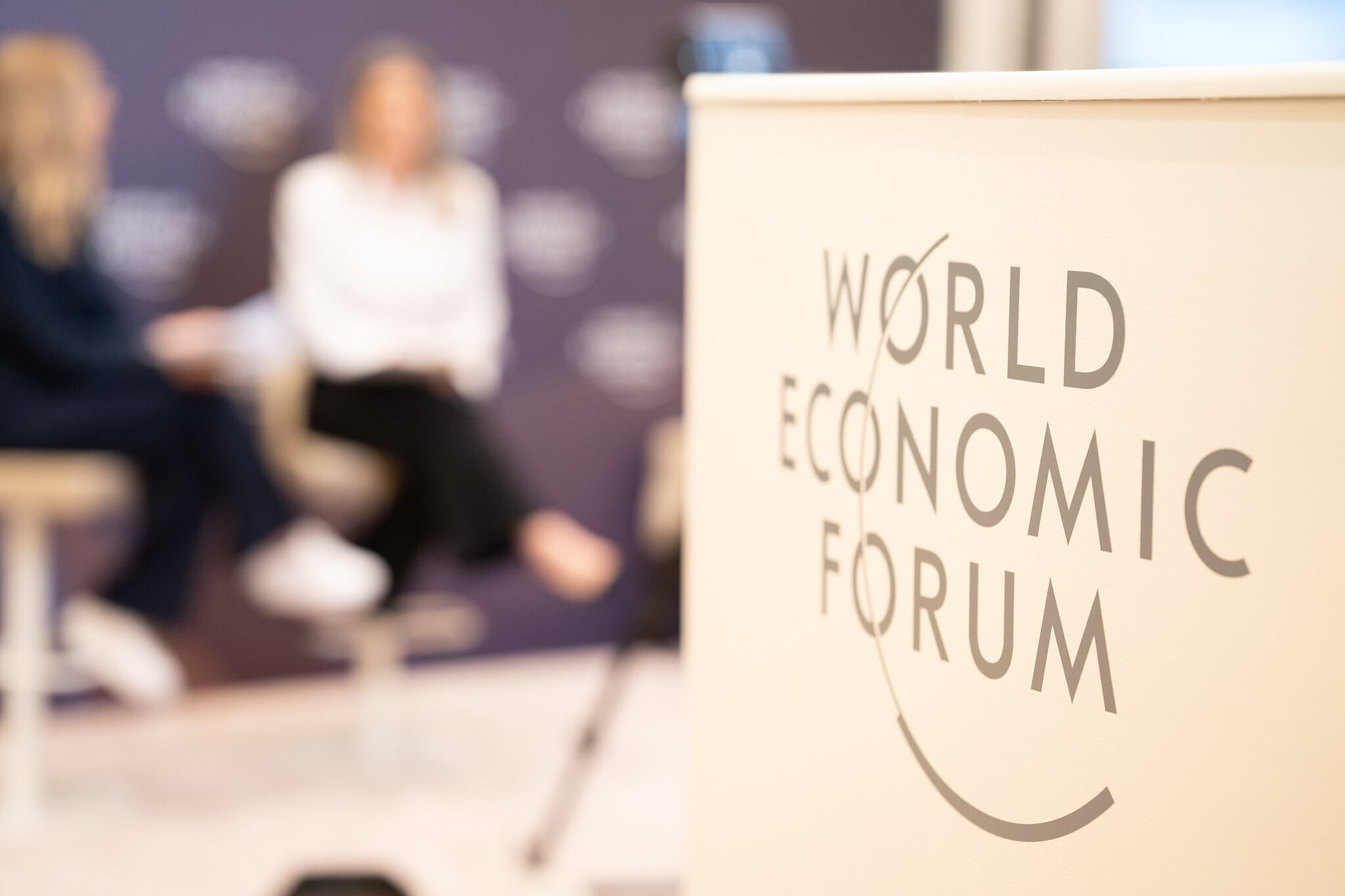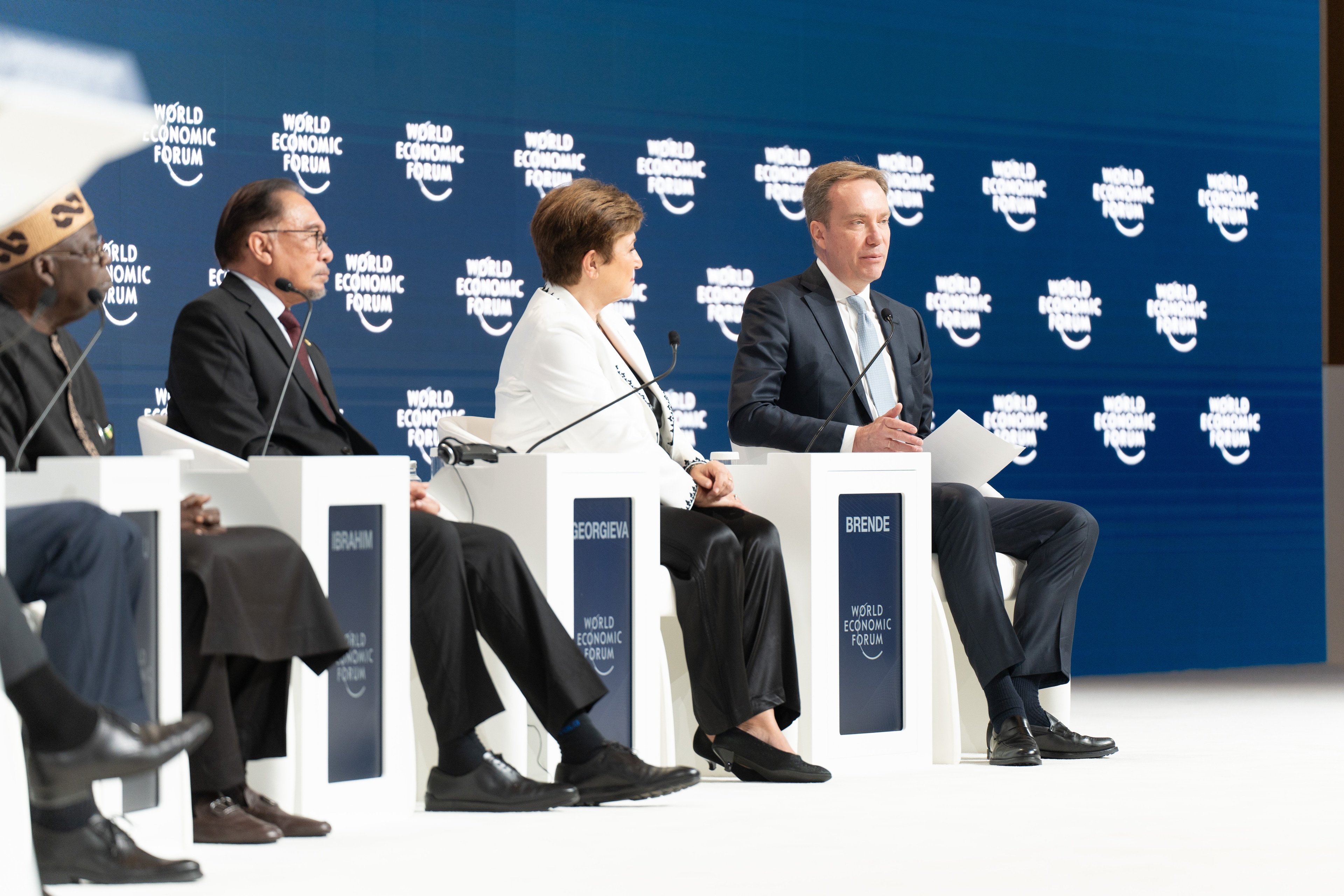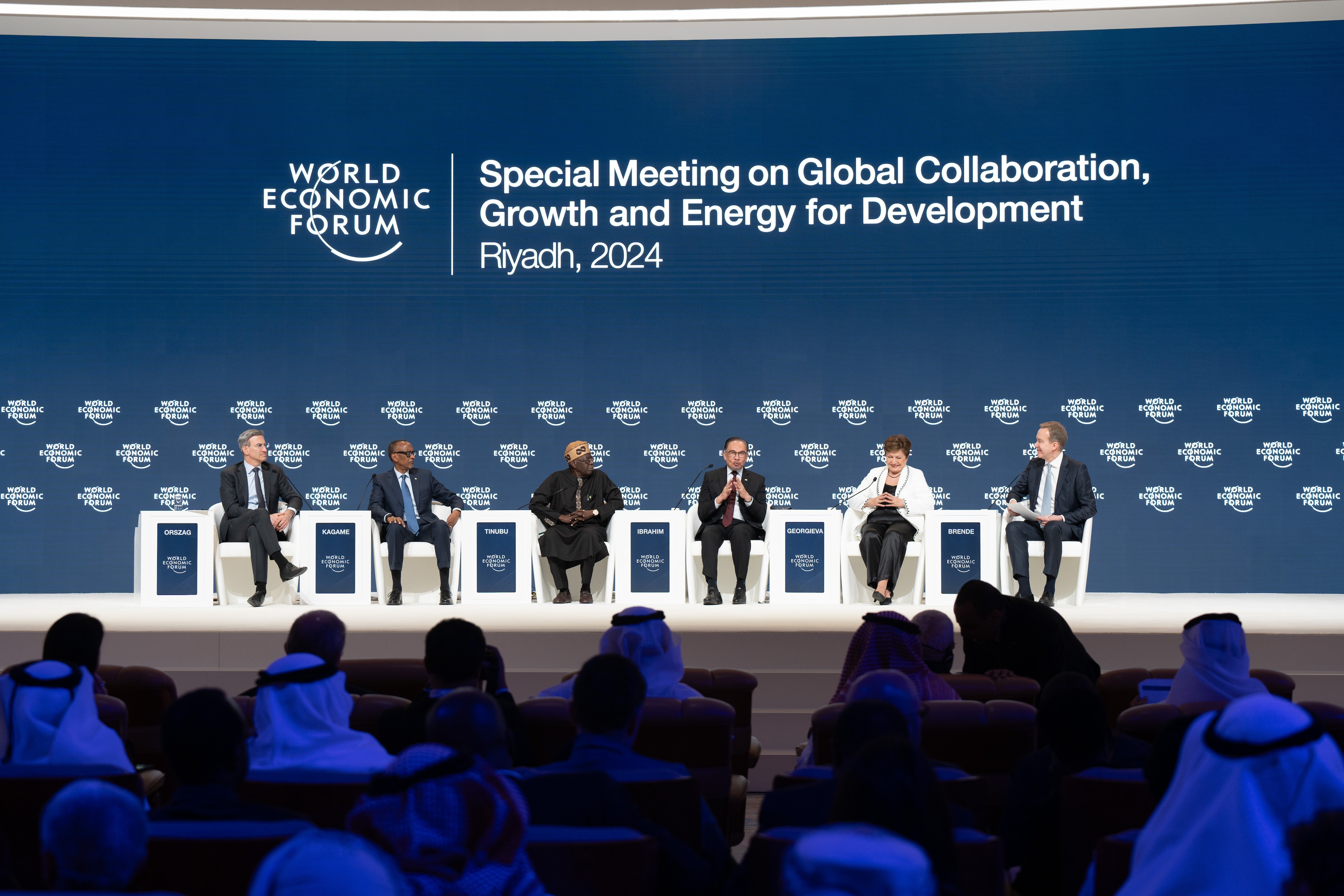How entrepreneurs can help strengthen food security in arid climates

The interplay between climate change and food insecurity means that both crises are worsening. We need innovations that achieve food security in water-scarce and low-resource areas to be scaled now. Image: Unsplash/Marta Ortigosa
Abdulrahman Al-Zamil
Head of Sustainable Development's External Engagement, Ministry of Economy and Planning, Saudi Arabia
Get involved with our crowdsourced digital platform to deliver impact at scale
Stay up to date:
UpLink
Listen to the article
- The availability and cost of food, as well as the ability to produce and eat nutritious food, have all declined in the past three years.
- In 2023, rising food commodity prices will most likely push millions of people towards food insecurity in countries stressed by the severity of climate change and income inequality.
- UpLink, in partnership with the Ministry of Economy and Planning of the Kingdom of Saudi Arabia, is launching the Food Ecosystems in Arid Climates Challenge, a global call for food entrepreneurs to submit their innovative solutions to achieving food security in water-scarce and low-resource areas.
Food and climate security are two crucial, intertwined elements of global prosperity. And they are both in the throes of crisis.
The availability and cost of food, as well as the ability to produce and eat nutritious food, have all declined in the past three years. As for climate change, a warming planet is increasing the frequency and volatility of extreme weather patterns, which are displacing millions of people around the world. In 2030, it is estimated that 700 million people will be displaced because of drought.
In 2023, rising food commodity prices will most likely push millions of people towards food insecurity in countries stressed by the severity of climate change and income inequality.
Meanwhile, the interplay between climate change and food insecurity means that both crises are worsening. With a harsher climate, agri-food production is compromised. And on the other side of the value chain, food waste emits methane which is fuelling greenhouse gas emissions.
Consider the impact of a more extreme imbalance: drought, lack of rainfall, desertification and the expansion of arid regions – on land, coastal areas, and seas. Not only is 1/5 of Earth’s land already covered by deserts, but also many regions are being hit with similar climate characteristics (explore the Challenge in numbers).
These geographical consequences threaten the security of people’s livelihoods, their economic opportunities and their stability. Combined, they present a complex matrix of critical challenges within food systems, food security and locally sourced nutritious foods.
But every challenge creates opportunities for innovative solutions.
In response to this crisis, UpLink is launching the Food Ecosystems in Arid Climates Challenge, a global call for food entrepreneurs to submit their innovative solutions to achieving food security in water-scarce and low-resource areas. The low-tech, high-tech or ancestral solutions this challenge is calling for will deliver on the availability, access or management of food on land and seas for those living in arid climates.
The Challenge calls for solutions that touch on one or more of these focus areas:
- 1) Production and resources: agriculture, water management, aquaculture, blue foods, nutrition and alternative proteins to tackle drought and desertification.
- 2) Sustainable food value/supply chains: including the reduction of food loss, food waste, equitable access to healthy and nutritious food and connected sustainable value chains, and integrating production, harvesting, distribution, processing, retail markets, restaurants, and households in arid climates.
- 3) Food socio-economy: enhancing skills, employment and income of farmers and food workers in deserts or drought-affected areas. Innovations that support strengthening financial safety nets, food sovereignty and financial inclusion impacted by lack of rainfall.
- 4) Data, digital access and technology: solutions that adopt new technologies, use of data, inclusive and responsible innovation, and methods of traceability that excel in arid climates.
- 5) Community awareness and education: social innovations, the participation of young people and women, ethical communication strategies, family and faith-based solutions, and the integration of traditional and indigenous solutions in drylands and regions exposed to drought.
This Challenge is a result of the partnership between UpLink and the Ministry of Economy and Planning of the Kingdom of Saudi Arabia to address the Sustainable Development Agenda 2030, focusing on SDG 2 – Zero Hunger. Moreover, the challenge brought together numerous supporting partners to integrate their perspectives into the Challenge to open a diverse and creative opportunity to food entrepreneurs who are bringing solutions to arid climates.

How to apply
The UpLink Food Ecosystems in Arid Climates Challenge is launching during the World Economic Forum’s Annual Meeting 2023 in Davos. The challenge will be open for submissions until 27 March 2023. We encourage all food entrepreneurs who are innovating in bringing food security to arid regions to apply here.
A cohort of Top Innovators will be announced later this year. The entrepreneurs will benefit from opportunities made available by UpLink and the World Economic Forum and the Challenge’s partners. In addition, they will be eligible for funding granted by the Kingdom of Saudi Arabia to advance, scale and replicate their solutions.
Don't miss any update on this topic
Create a free account and access your personalized content collection with our latest publications and analyses.
License and Republishing
World Economic Forum articles may be republished in accordance with the Creative Commons Attribution-NonCommercial-NoDerivatives 4.0 International Public License, and in accordance with our Terms of Use.
The views expressed in this article are those of the author alone and not the World Economic Forum.
Related topics:
The Agenda Weekly
A weekly update of the most important issues driving the global agenda
You can unsubscribe at any time using the link in our emails. For more details, review our privacy policy.
More on Forum InstitutionalSee all
Maroun Kairouz
May 3, 2024
Gayle Markovitz
April 28, 2024
Gayle Markovitz
April 27, 2024
Mirek Dušek and Maroun Kairouz
April 27, 2024
Kate Whiting
April 26, 2024
Spencer Feingold and Gayle Markovitz
April 19, 2024






